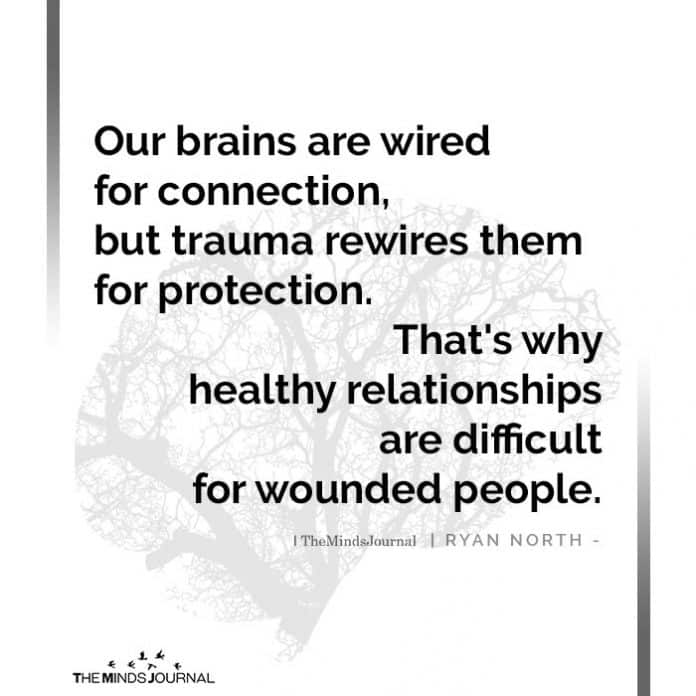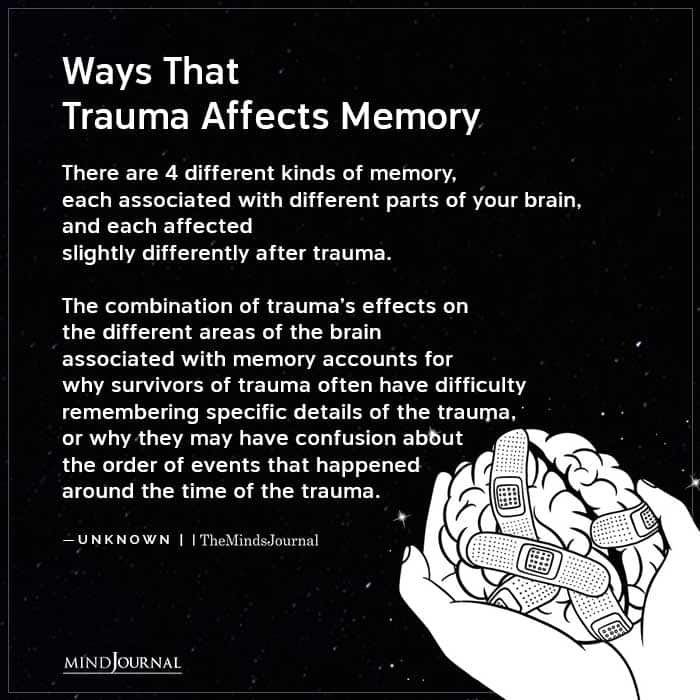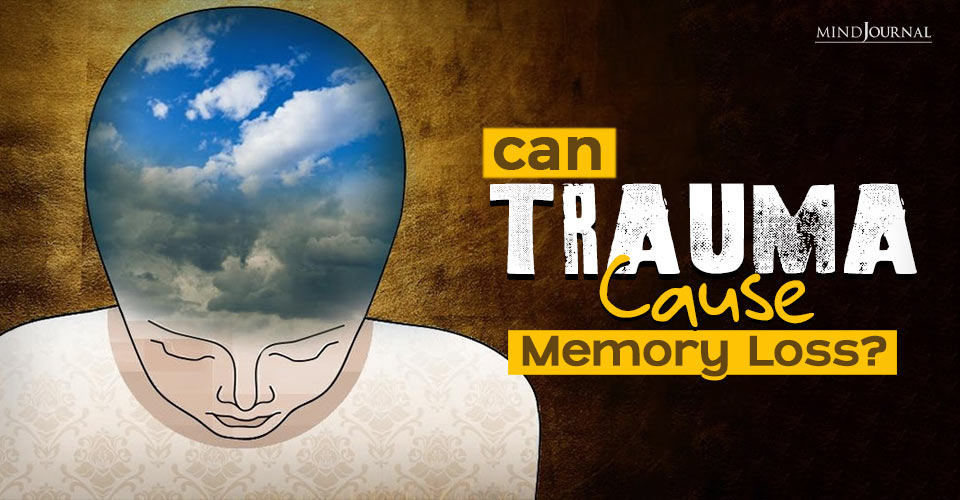How can trauma cause memory loss? Isn’t memory loss related to age or brain disorder? Well, there’s more to it than meets the eye.
Memory loss can be an unpleasant and sometimes terrifying experience, particularly when it is caused by a traumatic incident. According to research, there’s a clear link between the occurrence of emotional, psychological, or physical trauma and memory. Knowing how can trauma cause memory loss will help you understand what you’re dealing with and even help you cope with your problems with memory.
Memory loss may be a temporary coping mechanism to repress upsetting psychological trauma but can also be a result of a serious brain injury. Let’s learn more about how it affects our well-being.
Can Trauma Cause Memory Loss?
Normal aging can cause forgetfulness. But it does not lead to a dramatic loss in memory. Many ask questions like, “Can trauma cause memory loss?”
Well yes, this condition may be caused by many things, trauma is one of the many reasons. Let’s learn more about the causes of memory loss from trauma.
1. Physical trauma and memory loss
It refers to severe injuries or physical trauma to the body, which can even cause post-traumatic stress disorder in some people. It may lead to a temporary loss of memory. Memory loss takes place to help a person cope with the traumatic event that resulted in the injury.
If a person has experienced an accident, sexual or physical violence, the trauma of that incident could be a reason behind their forgetfulness. Some may experience partial or short term memory loss. But the length of memory loss depends on the severity of the injury.
2. Brain trauma and memory loss
Any form of trauma can cause a great deal of stress among individuals in both the short term and long term. This type of trauma may be caused by head injuries and the stress can have a negative impact on different areas of the brain, such as the hippocampus, amygdala, and prefrontal cortex. These areas of the brain are also strongly linked with cognitive function and memory.

A. Amygdala
This is considered as the “fear center of the brain,” and is activated or regulated in response to stressful situations which are characterized by heightened stimulation.
B. Prefrontal Cortex
This helps process working memory, and deals with the information that we need to remember on an everyday basis.
C. Hippocampus
This is known as the memory center for the brain and is responsible for storing, converting, and retrieving memories. It also allows us to compare past memories with present experiences.
Injuries from brain trauma and memory loss in kids or alcoholics are the most common types. Such traumatic events can be so intense that it can spark post-traumatic stress disorder (PTSD).
3. Psychological or emotional trauma and memory loss
Other than physical or brain trauma, emotional or psychological trauma can also affect your memory. Humans develop memory loss as a survival skill or defense mechanism to protect themselves from psychological damage.
Adverse childhood experiences of violence, sexual abuse, and other emotionally traumatic events can lead to dissociative amnesia, which helps children cope by allowing them to temporarily forget details of the event. Dissociative amnesia is a condition in which one cannot recall important events or details about their life.

In childhood trauma and memory loss – a child will often suppress memories of a traumatic event until they are ready to handle them.
Related: How To Heal From Childhood Trauma When Its Hampering Your Mental Health
This trauma and short term memory loss can lead to dysfunction in the child’s adulthood and relationships. The memory loss from trauma can also manifest itself in different ways including flashbacks of the event and intrusive, unwanted thoughts, etc.
How Does Trauma Cause Memory Loss?
We’ve understood why trauma and memory loss are linked but how does trauma affect memory? Ever wondered about that?’

Trauma can shut down episodic memory which is responsible for creating and recalling everyday information. It can even prevent one from making sense of the general information (like images, words, or sounds).
Loss of memory can be a defense mechanism developed to protect themselves from psychological damage from trauma but it can have various effects and downsides.
Memory loss and childhood trauma can lead one to lose the ability to make sense of various experiences or the ability to draw meaning in their own life.
PTSD and Memory Loss Symptoms
Most people who are triggered by stress or trauma, often suffer from post-traumatic stress disorder. It’s usually related to increased levels of anxiety, frustration, as well as depression. However, one of the most common symptoms of PTSD that doesn’t deal with emotional responses is cognitive impairment. It can range from memory loss to an inability to learn new things.
Let’s take a look at the signs and symptoms of it.
- Inability to recall past experiences or personal information.
- Feeling confused and disoriented.
- Feelings of guilt or shame for not being able to recall information.
- Feeling depressed or anxious due to lack of memory.
- Angry outbursts or intense stress levels.
- Detachment from surroundings.
Ways to improve memory loss from trauma
Here are a few simple strategies for improving your trauma-related memory problems:
- Practice mindful activities to reduce the stress in your environment.
- Feeling less stress will increase your ability to focus on important things.
- Take a few moments to gather your thoughts when you find yourself being forgetful.
- Write down all of your thoughts and concerns that you need to deal with.
- Make notes or reminders for yourself, and keep them in an organized manner.
We hope that this post about how can trauma cause memory loss was insightful. If you have more to add about the effect of trauma on memory, drop your thoughts in the comment section below.
Frequently Asked Questions (FAQs)
How does PTSD affect your memory?
Memory loss is one of the many symptoms of PTSD. It is also a temporary coping mechanism to help deal with painful psychological trauma.
Why do traumatic memories come back?
If a person deals with repressed or unresolved trauma, the memories of the traumatic event may come back in various forms like nightmares or flashbacks.
Can memories be repressed?
When dealing with how can trauma cause memory loss, you will learn that traumatic memories can indeed be repressed but it’s a rare occurrence and causes unresolved issues later in life.
What herb helps with memory loss?
According to scientific studies, some of the herbs that are found to boost memory are Rosemary, Ashwagandha, Sage, Lemon Balm, Ginseng, etc.











Leave a Reply